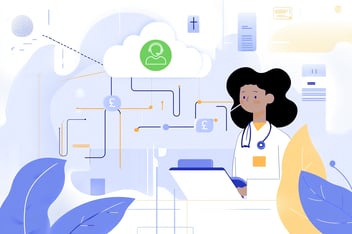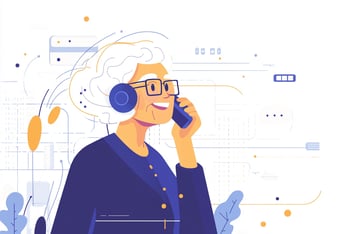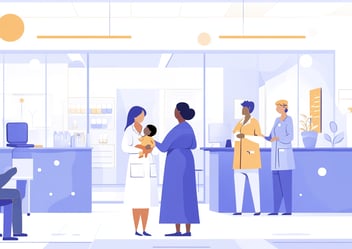
A Time-Limited Opportunity: How PCNs Can Capitalise on ICB Funding
The NHS is facing what has become an all-too-familiar plight: overstretched resources, challenging winter pressures ahead, and a...
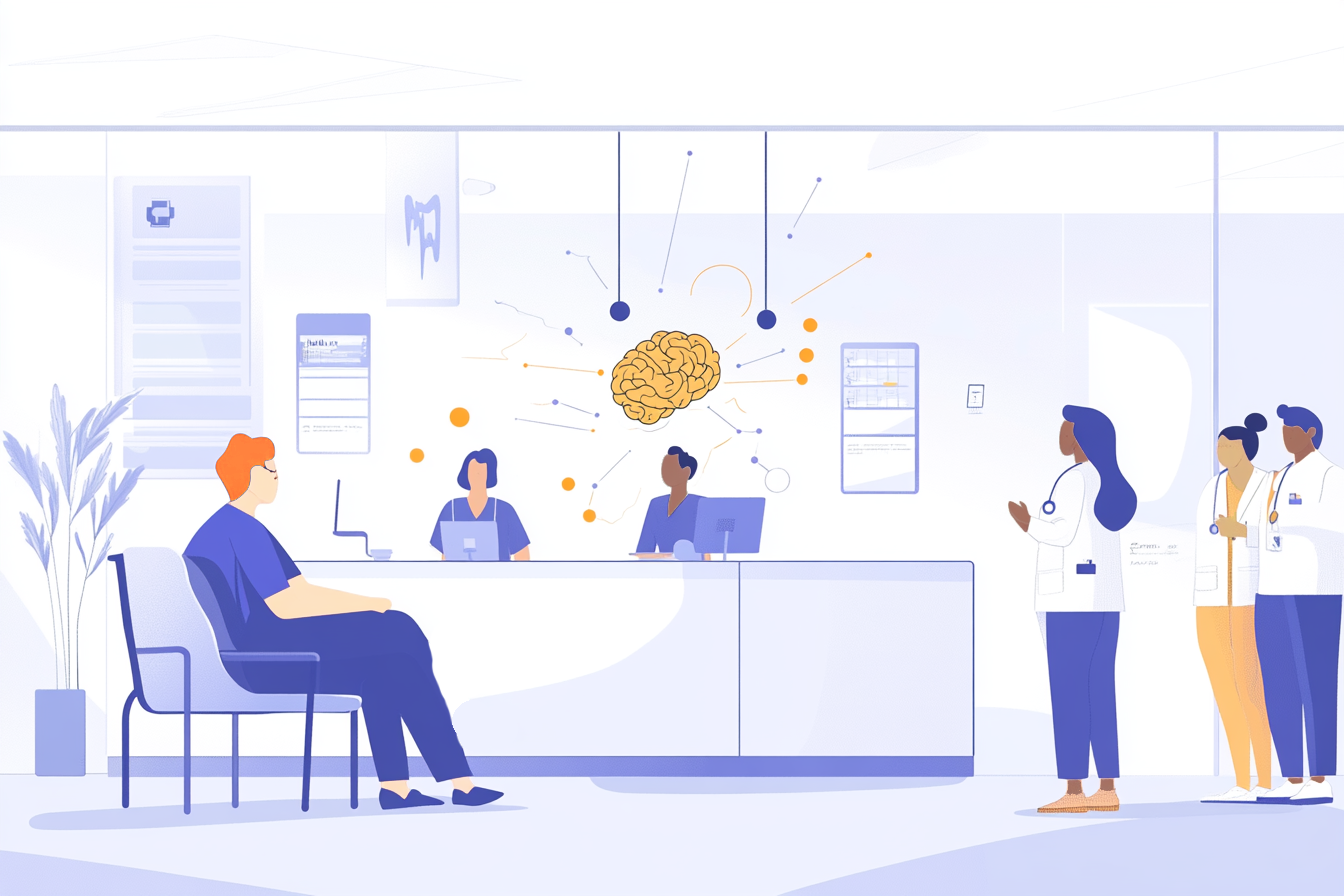
The NHS is facing what has become an all-too-familiar plight: overstretched resources, challenging winter pressures ahead, and a deluge of patients needing attention. But amid these pressures, a quiet revolution is underway in the form of an AI-powered solution designed specifically for GP surgeries. QuantumLoopAi, a new player in the medical tech space, is already making waves with its simple yet transformative technology, taking some of the most time-intensive and frustrating burdens off the shoulders of overstretched GP receptionists.
In the public imagination, when we think of artificial intelligence in healthcare, we might think of image recognition algorithms sifting through thousands of X-rays or MRI scans, spotting cancer markers with the precision only a computer could offer. Indeed, the NHS has benefitted greatly from AI-driven clinical insights in areas like radiology, pathology, and data analytics. But QuantumLoopAi’s solution is not about research or clinical diagnostics. Instead, it’s about answering the phones.
That might sound almost trivial. But let’s not forget that for millions of patients, getting through to their GP surgery is the first step on the path to care. The receptionist is the gatekeeper of care pathways, the bearer of all manner of patient frustrations, and, in essence, a core part of the healthcare experience. When a patient can’t get through on the phone, the entire system feels impenetrable. QuantumLoopAi recognises this and addresses it with a smart AI-powered agent that’s designed to act as the perfect receptionist.
QuantumLoopAi’s system has some startling claims to its name. It promises that every call to a GP surgery will be answered within three rings, and it achieves this every time, rain or shine. Not only is the call answered, but in more than 80% of cases, the AI agent completes the call autonomously, without needing human intervention. Patients who call up to book appointments or request routine information are greeted by a pleasant, apparently human voice, and the AI handles their request seamlessly. It even fills out appointment forms in the surgery’s own booking software, such as Accurx or Patchs, with zero delay.
This isn’t a dream for some distant, AI-infused future. It’s happening now. Launched in 2024, QuantumLoopAi’s solution has already been adopted by progressive PCNs (Primary Care Networks) and individual practices across the UK. As the winter approaches, surgeries facing the familiar onslaught of winter pressures are embracing this technology to take some of the weight off their shoulders.
For decades, discussions of AI in healthcare have been synonymous with research-driven applications. From algorithms trained to analyse imaging data for signs of disease to complex data models predicting patient outcomes, AI has primarily been about boosting the clinical prowess of healthcare systems. And these innovations are not without merit; in radiology alone, AI-driven image recognition has the potential to identify signs of disease that human eyes might miss, prompting life-saving interventions (Department of Health, 2023).
However, in many ways, QuantumLoopAi’s use of AI addresses a far more accessible issue: the phone line. And let’s not forget, according to the GPPS 2024, 86% of patients prefer to call their surgery by phone, rather than use online access. The AI doesn’t need medical expertise; it simply needs to be reliable, pleasant, and quick. And it’s on this foundation that QuantumLoopAi is gaining traction.
For all the talk of revolutionary AI, the technology that QuantumLoopAi deploys is refreshingly straightforward. The solution is cloud-based, meaning it doesn’t require on-site servers or complex local IT support. GP surgeries can integrate it with their existing systems like Accurx, SystmOne, and EMIS Web. All it takes is a simple configuration to allow QuantumLoopAi access to automatically log patient requests directly into the surgery’s appointment scheduling software. This is completed, on average, within two weeks. Once set up, the main reception line is redirected to a QuantumLoopAi number, where all calls are handled with remarkable efficiency.
The effect of this is significant. Call waiting times drop to zero, as every call is picked up almost immediately, eliminating frustrating queues. And it doesn’t subject callers to labyrinthine menus or annoying “press 3 for...” options. Instead, the AI recognises natural speech, understanding requests without making patients repeat themselves—a particular boon for elderly or frail callers.
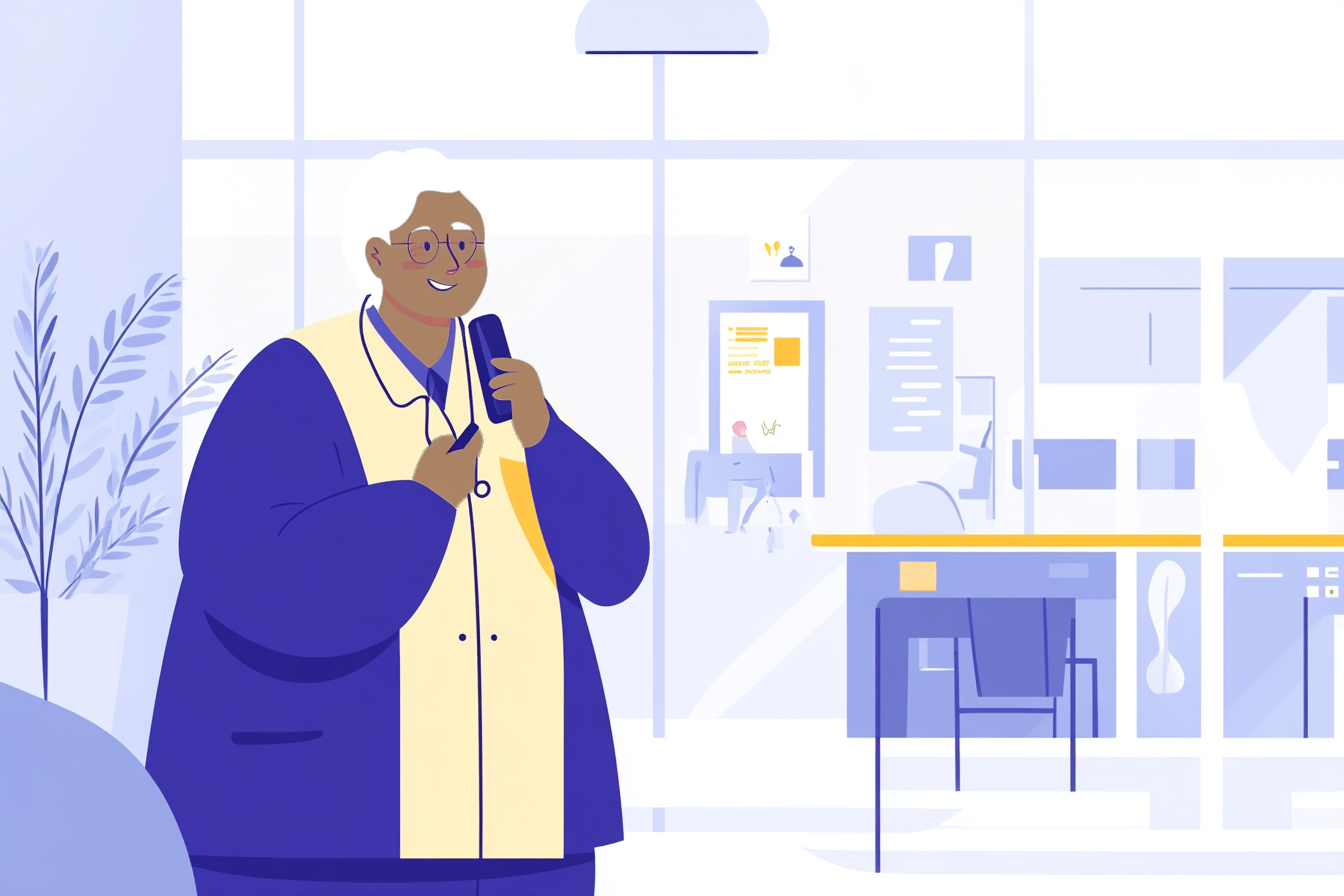
In a diverse country like the UK, with over 300 languages spoken, language barriers can add an additional layer of difficulty for both patients and staff. The QuantumLoopAi solution natively supports an impressive array of 99 languages, not only recognising spoken languages but also translating responses into the surgery’s records if required. And it does this with staggering accuracy.
The AI is trained to understand accents, colloquial phrases, and even the occasional garbled sentence—something many humans would struggle with. For surgeries, this represents a substantial improvement in patient access. QuantumLoopAi reports that surgeries using its system have improved their call-answer rates from around 86% to a flawless 100%. What’s more, they’ve seen a more than twofold increase in completed appointment bookings via the AI.
Of course, AI voice solutions are nothing new. But QuantumLoopAi has crafted a system so lifelike that patients often don’t even realise they’re speaking to a machine. In surveys, over 90% of patients who interacted with QuantumLoopAi’s AI reported a positive experience, and many were genuinely surprised to learn that their polite, efficient conversational partner was not, in fact, a human being.
For GP surgeries, this translates into more than just smoother call handling; it also results in far fewer complaints. Patients are no longer frustrated by long hold times or misrouted calls. And that reduced frustration makes the lives of real, human receptionists far easier too. As calls that genuinely require human attention are seamlessly transferred to live reception staff (about a fifth of the total call volume), QuantumLoopAi effectively operates as the first line of contact, fielding requests and sorting out simple issues before they ever reach a person.
In addition to reducing stress, QuantumLoopAi’s solution allows surgery staff to redeploy their time to more meaningful tasks, such as navigating patients through complex care pathways and providing more personalised support.

One unexpected but incredibly valuable feature of QuantumLoopAi is its ability to re-engage callers who abandon calls. It’s no secret that when patients face long waits, they often give up—only to face the same wait when they call again. QuantumLoopAi, however, is designed to automatically re-engage 41% of dropped calls, securing appointments for those in need and ensuring that no one falls through the cracks.
For patients, this can be the difference between receiving timely care and being lost in a frustrating loop of missed calls and unfulfilled needs.
In a world where NHS practices often struggle to secure funding, the phrase “AI-powered solution” might conjure images of costly tech, requiring heavy upfront investments. Yet QuantumLoopAi’s solution comes with a different promise. Hosted in the cloud, it eliminates the need for in-house servers or IT support. As a CAP-compliant solution, QuantumLoopAi offers detailed reporting on its call-handling performance, enabling surgeries to apply for additional NHS funding based on measurable call-handling improvements.
Beyond funding opportunities, the solution has an immediate financial benefit in reducing the need for temporary reception cover. When staff are on leave or absent due to illness, QuantumLoopAi seamlessly fills in the gap, answering every call without relying on human intervention. While the AI doesn’t directly replace human staff, it reduces the strain and the need to constantly hire, train, and retain new receptionists — a familiar and frustrating cycle in many practices across the country.

With the NHS facing unprecedented challenges, QuantumLoopAi’s solution feels like a rare win. It addresses a basic yet profound problem, delivering consistent results without adding more pressure to already stretched human resources. The technology is affordable, accessible, and highly effective, giving GP practices a reliable means of handling their ever-increasing call volumes and focusing human resources where they’re needed most.
For years, we’ve heard grand promises about the transformative potential of AI in healthcare. QuantumLoopAi offers a glimpse into a future where that transformation is not just hype but a practical reality, already improving patient experience, reducing staff burnout, and — perhaps most importantly — connecting patients to the care they need more quickly.
Related content

